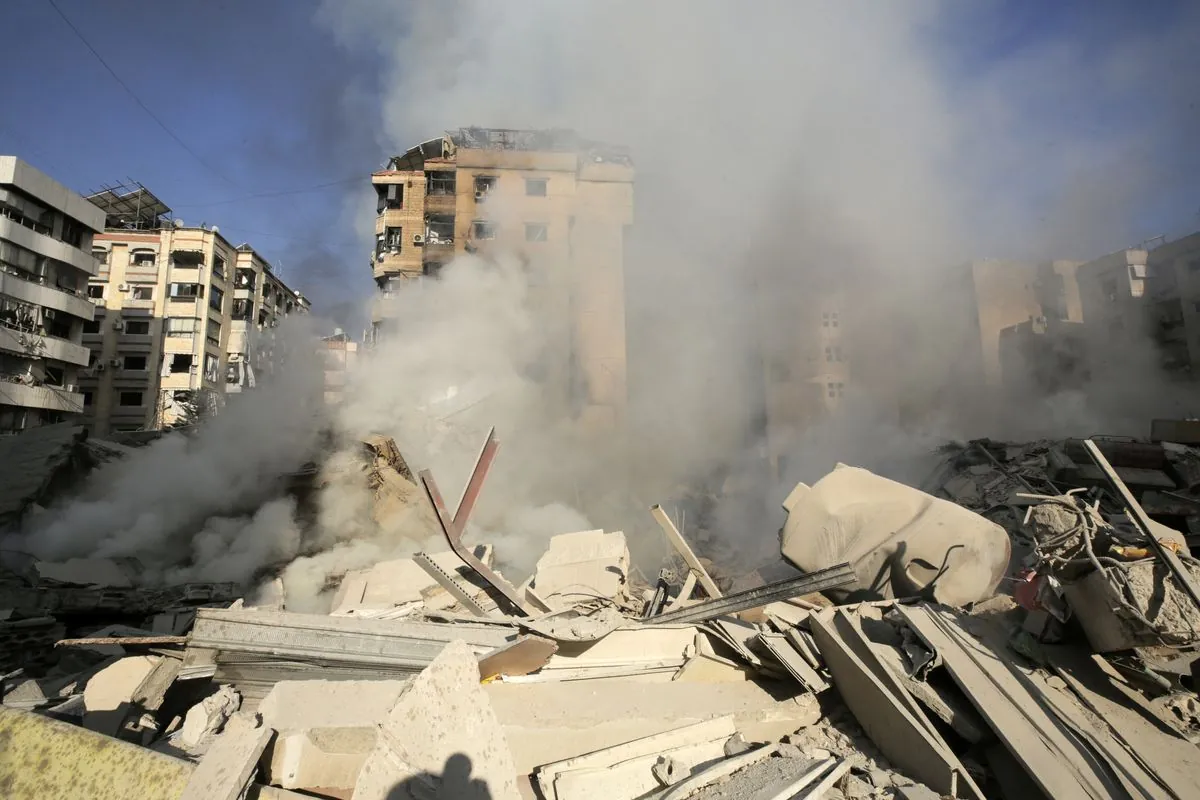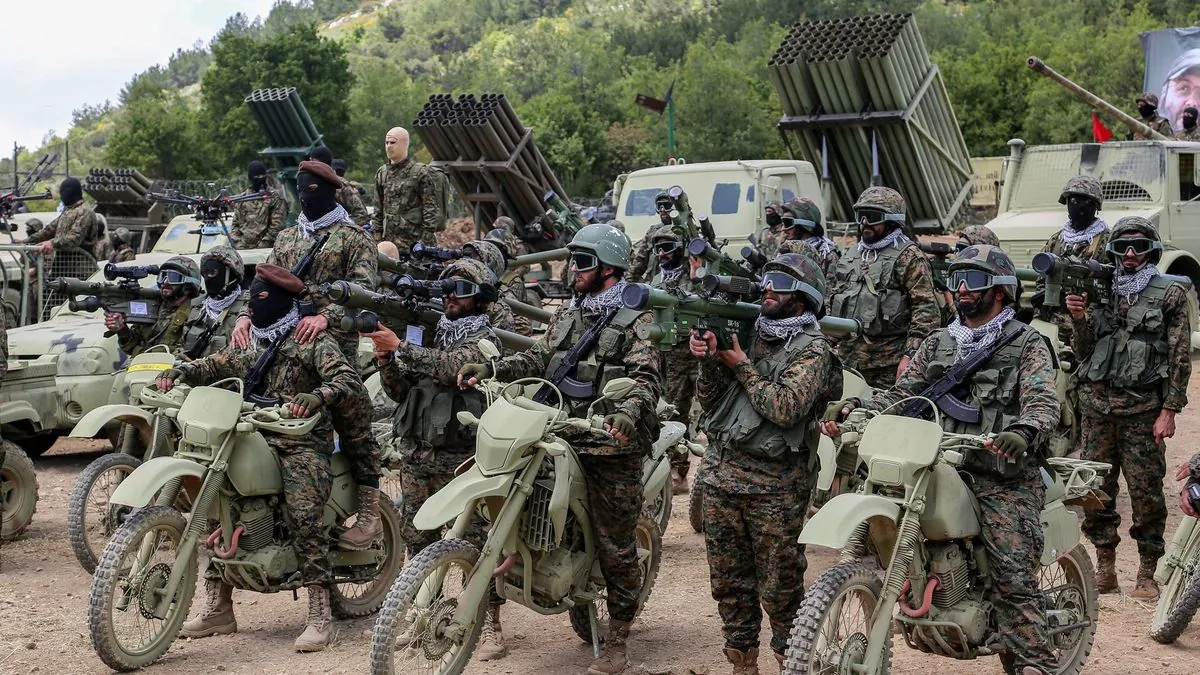Israeli Strikes Eliminate Seven Top Hezbollah Officials, Including Leader
Recent Israeli airstrikes in Lebanon have resulted in the deaths of seven high-ranking Hezbollah commanders, including the group's leader Hassan Nasrallah. This marks a significant escalation in the ongoing Middle East conflict.

In a series of recent strikes, Israeli forces have eliminated seven high-ranking officials from Hezbollah, including the group's leader Hassan Nasrallah. This development marks a significant escalation in the ongoing Middle East conflict, occurring approximately 32 years after Nasrallah assumed leadership of the organization in 1992.
Hezbollah, founded in 1985 as a resistance movement against Israeli occupation of southern Lebanon, has long been a powerful force in the region. The group, which is designated as a terrorist organization by several countries including the United States and Israel, has an estimated 25,000 active fighters and 20,000-30,000 reservists.
The recent strikes have dealt a severe blow to Hezbollah's leadership structure. Among those killed were:
- Hassan Nasrallah, the group's leader since 1992
- Nabil Kaouk, deputy head of Hezbollah's Central Council
- Ibrahim Akil, leader of the elite Radwan Forces
- Ahmad Wehbe, a commander of the Radwan Forces
- Ali Karaki, head of Hezbollah's southern front
- Mohammad Surour, leader of the drone unit
- Ibrahim Kobeissi, head of the missile unit
These losses are particularly significant given Hezbollah's extensive involvement in regional conflicts. The group has played a crucial role in supporting Syrian President Bashar Assad since the Syrian Civil War began in 2011, and has also aided in developing the capabilities of Iran-backed armed groups in Iraq and Yemen.

Hezbollah's influence extends beyond military operations. The organization operates a vast network of social services in Lebanon, including schools, hospitals, and welfare programs. It also has a strong presence in the Lebanese parliament and government, highlighting its complex role in the country's political landscape.
The group's military capabilities are substantial, with an estimated arsenal of over 130,000 rockets and missiles. In recent years, Hezbollah has also developed sophisticated cyber warfare capabilities and has been involved in training other militant organizations across the Middle East.
The elimination of these key figures raises questions about Hezbollah's future leadership and operational capabilities. Naim Kassem, Nasrallah's second-in-command and deputy leader since 1991, is now the most senior member of the organization. Hashim Safieddine, who heads Hezbollah's central council, is tipped as a potential successor to Nasrallah.
These strikes come at a time of heightened tensions in the region. Hezbollah had opened a front to support its ally Hamas in the Gaza Strip following Hamas' attack on southern Israel. The group's involvement in conflicts beyond Lebanon's borders, including its support for the Syrian government since 2013, has been a source of controversy both domestically and internationally.
As the situation continues to develop, the international community watches closely. The loss of these key leaders may significantly impact Hezbollah's operations and strategy in the coming months, potentially altering the dynamics of the ongoing conflict in the Middle East.
"The elimination of Hezbollah's top leadership is a major blow to the organization and a significant achievement for our intelligence and military forces. We will continue to take all necessary measures to protect our citizens and maintain regional stability."


































